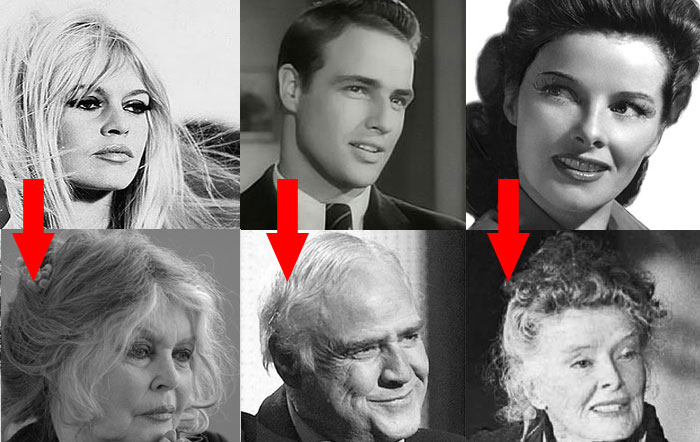Those daydreams didn't last too long, however. It was easy to travel back in time and imagine historical figures like Cleopatra or Marilyn Monroe who were often depicted beautifully in movies or in pictures. But those images always chose to capture the beauty of these women in the prime of their lives. What killed my daydreams was when one day, I recognized that I was dreaming about a romantic relationship with an 80 and a 2,000 year old woman - basically a grandma and a mummy. After that realization, I kept my historical fantasies to battlefields and away from romance.
We hate being reminded of our mortality. I think our historical fantasies and intuitions are one piece of evidence for this, but we can also look at our feelings when watching movies where there are huge age discrepancies (Age of Adeline, Tuck Everlasting, Ice Age 5, Hook, or Twilight). Most of us are not repulsed by the relationships represented in these movies despite the age differences because the bodies of the aged show no signs of approaching death. Sure, it's a little strange when you really think about it, but it's not repulsive like when you see Hugh Hefner with his arm around a nineteen year old woman.
I don't think such a conclusion should be surprising. While many may say they don't like to disclose their age, it's really our proximity to death we don't like disclosing. It's why senior citizens and the elderly don't buy fake ID's with a later birth date so they can deceive others as to how many years they've lived. Instead, they spend time and money on hair coloring products, makeup, or anything else to make themselves appear at a greater distance from death's doorstep. Age isn't despised - our mortality is. We don't care about numbers, we care about vitality. We try to hide, both to others and to ourselves, that we are mortal creatures. And when the aged and infirmed in our families can no longer mask the scent of death, we hide them away in places where we don't have to look upon them any longer, except on holidays or when the will is being drawn up. I would argue that nursing homes are, for the majority of occupants in our society, not primarily a place for receiving care, but a place where they can be hidden away and forgotten. Yes, we hate inconvenience, but we hate being reminded of death even more.
Stanley Hauerwas, while talking about American ideals and values, said something I thought quite profound for the topic at hand. Hauerwas said,
...[Americans] share nothing in common other than the presumption that death is to be avoided at all costs. That is why in America hospitals have become our cathedrals and physicians are our priests. Accordingly medical schools are much more serious about the moral formation of their students than divinity schools. They are so because Americans do not believe that an inadequately trained priest may damage their salvation, but they do believe an inadequately trained doctor can hurt them. The American desire to use medicine in an attempt to get out of life alive...(Article 1)
...When I lecture to lay audiences, I ask them how they want to die. For people in our society the response is fairly consistent: they want to die quickly, painlessly, in their sleep, and without being a burden. They want to die painlessly, in their sleep, and quickly because when they die they don’t want to have to know they’re dying. So now they ask physicians to keep them alive to the point that when they die they don’t have to know they’re dying – and then they blame physicians for keeping them alive to no point. (article 2)
No man is an island,
Entire of itself.
Each is a piece of the continent,
A part of the main.
If a clod be washed away by the sea,
Europe is the less.
As well as if a promontory were.
As well as if a manor of thine own
Or of thine friend's were.
Each man's death diminishes me,
For I am involved in mankind.
Therefore, send not to know
For whom the bell tolls,
It tolls for thee.
- John Donne





 RSS Feed
RSS Feed